By Shea Bennett If you hang around or come into contact with a lot of sick people, you’re very likely to fall ill yourself. Common sense, perhaps, but what if we could use social media to predict the likelihood of that happening in advance? Researchers at the University Of Rochester in New York […]

By Bernardo Cervellera (catholic news)
ROME, Italy (AsiaNews) – A few days ago, the website of Notre Dame de Kabylie posted a tape in which a former Muslim, Mohammed Christophe Bilek, talked about his conversion to Christianity. The original broadcast, which focused on the persecution of Christians, first appeared in ‘Dieu Merci’ (Thank God), a show that deals with religion on Direct 8, a French TV channel.
Mohammed Christophe Bilek was born in Algeria in 1950 and has lived in France since 1961. He is the author of two books: Un algérien pas très catholique (A not very Catholic Algerian), published by Cerf (1999) and Saint Augustin raconté à ma fille (Saint Augustine as told to my daughter), published by Éditions Qabel (2011). In the 1990s, he founded the Notre Dame de Kabylie (in French), a website devoted to evangelisation among Muslims and Muslim-Christian dialogue.
In the video, Bilek highlights the risk Muslim converts face when accused of apostasy, an offence that can be punished by death. Nevertheless, he insists on the importance of baptism, the encounter with Jesus Christ and affiliation with the Church.
His views go against those of priests and bishops in Muslim countries, who prefer to dissuade or even deny baptism to Muslims who want to convert out of fear for the consequences they and Christian communities might face.
Is baptising banned?
A few weeks ago, a bishop in an Arab country in the Middle East told me that police threatened to close one of his communities because members had advertised a Christian-Muslim meeting on dialogue. Police were concerned that this might be the first step towards so-called proselytising and apostasy. "If this is the reaction to a meeting on dialogue, imagine what it would be if we had a conversion," an embittered bishop said.
It is no wonder then that the prelate is against conversions and baptisms for only this seems to be the way to preserve the little freedom of worship that exists in the country in question.
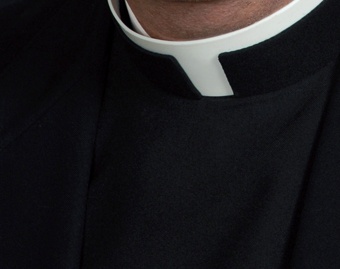
.- “I never thought I’d end up doing this, no,” admits the middle-aged priest whose unexpected path to becoming an exorcist began while saying one of his first Masses after he was ordained 15 years ago.
“At the moment of consecration of the precious blood I asked the Lord to shower his blood upon the youth and to help any young men who may have a vocation to the priesthood.”
The instant reaction of one 13-year old boy shocked the young priest, “he fell backwards and started growling. And I thought, ‘I wasn’t expecting this!’”
Several years later, and he is one of a new generation of exorcists-in-training following a decision by the U.S. bishops in November 2010 to vastly increase the number of exorcists, which might number as low as 50 in America.
The priest, who is from the U.S. Midwest, spoke to CNA on the basis of anonymity so that he will not be deluged with inquiries. As he explained, “we have set structures to make sure those who most need help get it.”
He now finds himself in Rome, sent by his bishop to shadow the work of the six official exorcists of the Rome diocese. In practical terms that means he is “involved in about three exorcisms a day.”

Lead Bolt created a massive infographic called “Mobile App Store Wars,” comparing some key revenue statistics about how apps are selling in Apple’s App Store, Amazon’s App Store and in Google Play.
We’ve embedded the whole infographic below–all media professionals and content creators need to pay attention to the how apps are selling across the marketplace.
Check it out: “It should be no surprise that the leader of the most downloaded apps and content available is the Apple Store. Apple tops the market with an amazing 30 billion app downloads and 650,000 apps available. These numbers are growing each year.”
As you might have noticed, celebrities have taken to social media in their droves. For professional athletes, these channels have allowed them to engage and interact with fans, naysayers and rivals, providing an almost endless supply of quotes and stories for the mainstream media.
With the 2012 London Olympics now officially underway (although the opening ceremony is, strangely, taking place tomorrow), the profile of the athletes taking part in these Games has never been higher. But which of these sporting stars’ personal brands is numero uno amongst potential sponsors?
Sponsorhub used the Twitter, Facebook and Klout statistics of the Olympic athletes to determine the social influence of these stars, and coupled this with their on-field performance in professional and international competition to create a Sponsorhub Score, which assesses the value of these athletes to brands.
And the winner? Tennis superstar and recent Wimbledon winner Roger Federer. Federer, although absent on Twitter, is very active on Facebook and this was enough to see his Sponsorhub Score surpass that of the Twitter-pro Serena Williams and basketball icon Lebron James.
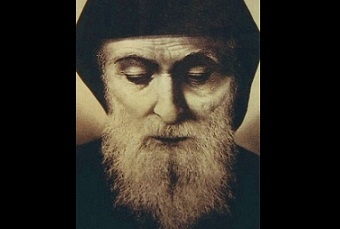
.- On July 24, the Catholic Church celebrates the life of St. Charbel Makhlouf, a Maronite Catholic priest, monk, and hermit who is known for working miracles both during his life and after his death.
On the occasion of his beatification in 1965, the Eastern Catholic hermit was described by Pope Paul VI as “ a new, eminent member of monastic sanctity,” who “through his example and his intercession is enriching the entire Christian people.”
Born into humble circumstances in Lebanon during 1828, Yussef Antoun Makhlouf was the youngest of Antoun Zaarour Makhlouf and Brigitta Elias al-Shediyaq’s five children. Antoun, who had been taken away from the family and forced into hard labor, died when his youngest son was only three.
Yussef studied at the parish school and tended to his family’s cow. Engaged in prayer and solitude from a early age, he spent a great deal of time outdoors in the fields and pastures near his village, contemplating God amid the inspiring views of Lebanon’s valleys and mountains.
His uncle and guardian Tanious wanted the boy to continue working with him, while his mother wanted him to marry a young woman. Yussef had other plans, however, and left home in 1851 without informing anyone.
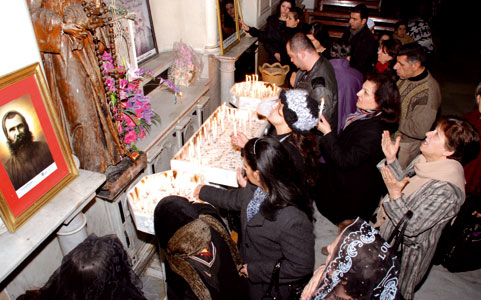
.- Maronite Archbishop Samir Nassar of Damascus spoke out against the violent conflict between government and rebel forces in Syria, drawing particular attention to the plight of refugees “In this period of mindless violence, our voices are drowned by the long ordeal of the country and by a complexity that is blocking any diplomatic solution. The country is sinking in sorrow and gratuitous violence and there is still no end in sight, we have been in a protracted conflict for more than sixteen months,” he told Fides news agency.
The archbishop’s comments came before a July 18 bomb attack at a high-level crisis meeting that killed three government leaders, including President Bashar Assad’s brother-in-law and the defense minister. Defense Minister Dawoud Rajha was the most senior Christian government official in Syria. Syria’s Christians, who make up 10 percent of the population, tend to support the government. Rebels tend to draw support from the majority Sunni Muslim population.
.jpg)
GLADE PARK, CO (Catholic Online) — Cardinal Timothy M. Dolan of New York recently wrote about the importance of viewing the U.S. as "mission" territory. He noted that Catholics in America must move from "keeping our faith to ourselves to letting it shine to others!" With those words, Cardinal Dolan kindly reminds Catholics that the Church has never advocated a Christian discipleship which is based solely on silent witness to the Gospel.
That message, one which calls Catholics to embrace and live their faith openly, zealous in spreading the Gospel of Jesus Christ in both word and deed as it has been guarded and transmitted by the Church for twenty-centuries, is not new. In fact, it began with the example of St. Peter and the other apostles on Pentecost, that day on which the Church was made "manifest to the world" by "the outpouring of the Holy Spirit" (CCC 1076; see Acts 2). On that glorious day, the apostles began to speak openly and actively in favor of the way of Christ.
When we look at the apostles method of evangelization, we immediately notice that it energetically involved the whole person; i.e., it became their way of life — even if that way of life meant martyrdom. And it indeed did for all of the apostles save St. John.
Today the context of evangelization is different — thus it is called the "New Evangelization." While the apostles labored to water the seed of the Church planted by Christ, nourishing it with their very blood that it may become a vine whose tendrils of truth and light would reach across the fields of the earth, evangelization has been shaped in recent times by the affects of an increasingly post-Christian era. That is, nearly everyone knows of Christ, but few people truly and intimately know the Person who is Jesus the Christ. A vine overgrown with weeds is more often encountered than a land of weeds. As Pope Benedict XVI has emphatically stated more than once, men are living as if God does not exist. It would be a serious error to imagine the Holy Father is speaking only to those who openly reject God, however often as the case may be, for he is speaking primarily to reputed Christians.
This situation in which America has become imbued with the ambience of practical atheism, is due in large part to the "we’re all fine" phenomenon. It goes like this: "God loves me and you the way we are, so not to worry. Sure, everybody has their faults, but Christ died for our sins. God will work it all out." As is evident, such a convenient religious philosophy is not entirely unrelated to the unbiblical doctrine of unconditional salvation, also known as "eternal security" or "once saved always saved." That people are on different paths is true, but the notion that all these paths invariably lead to the same glorious end regardless of how the individual person exercises free will, is one giant, diabolical lie.
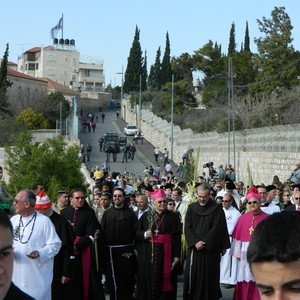
.- The Franciscans in Syria are calling upon foreign powers to stop sending arms to the country after reports that over 200 civilians have been massacred in the village of Tremseh, potentially the bloodiest single incident of the Syrian conflict so far.
“It is a tragedy, the news is confusing, truth is the first victim,” Franciscan Father Romualdo Fernandez, Director of the Ecumenical Centre of Tabbaleh, said on July 13 in Damascus.
“If foreign powers continue to arm and finance the warring parties, the war will continue and victims will increase. This is not the way of peace: the road to peace is through dialogue,” he told the Vatican’s Fides news agency.
The armed revolt against Syria’s President Bashar al-Assad began in March 2011 and has since claimed over 10,000 lives, according to the latest U.N. estimates.
Reports as to what happened in the village of Tremseh are conflicting. United Nations observers have confirmed that the village in the western Hama province was subject to heavy fighting, including helicopters, tanks and heavy artillery on Thursday, July 12.
The Supreme Court has ruled that those fines or penalties for non-compliance with the Affordable Care Act are a tax. Thus, the Federal Government will soon tax the Catholic Church for abiding by its deeply held religious convictions in its ministry to people in need. These taxes could have the practical result of closing many of the Church’s outreaches, ministries and institutions of care and compassion. This not only injures the Church and violates the Constitution, it injures American society and is an offense against the common good.
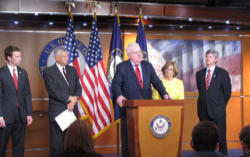
By Deacon Keith Fournier – WASHINGTON, DC (Catholic Online) – On Thursday, June 28, 2012 the United States Supreme Court upheld the constitutionality of the individual mandate of the Affordable care Act (aka Obama Care). The dense opinion was authored for a 5- 4majority by Chief Justice John Roberts. Justices Kennedy, Alito, Scalia and Thomas strongly dissented. However, a Court speaks through its majority. The Majority opinion upheld the mandate of the Patient Protection and Affordable Care Act, not under the Commerce Clause, but as an exercise of Congress’ power to tax.
The Obama Administration initially argued that the penalty for non-compliance with the Affordable Care Act’s mandate to purchase insurance was not a tax. In fact, candidate and then President Obama, as well as the Congressional proponents of the legislation, argued that it was not a tax. They changed their position in the Chambers of the US Supreme Court. Now that the Supreme Court has held that the penalties for non-compliance are a tax, the political opposition has shifted. For all of us concerned about Religious Liberty, this is about much more than semantics. The Administration is saying violate your faith or pay a punitive tax to the Federal Government!
The major First Amendment Free Exercise of Religion concerns triggered by the HHS Mandate in the implementation of the Affordable Care Act have given rise to numerous lawsuits on their way to the US Supreme Court. They properly argue that the implementation of the Act through the HHS Mandate is unconstitutional because it violates the Free Exercise of Religion under the First Amendment. Those cases might have become moot had the Court struck down the Act. They are now more important – and much more urgent – than before.




